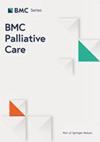分析葡萄牙姑息关怀的创新政策和实践:一项定性研究
IF 2.5
2区 医学
Q2 HEALTH CARE SCIENCES & SERVICES
引用次数: 0
摘要
葡萄牙等拥有正式的姑息关怀政策以及该领域先进的综合实践的国家,在实现卓越关怀方面面临着挑战,尤其是在以家庭为基础的援助方面。问题包括医疗服务提供者之间的关怀协调、网络中各医疗专业人员角色的混淆,以及缺乏对行动的监督和评估。我们的目标是分析葡萄牙在初级医疗保健中实施姑息关怀的情况。我们在葡萄牙开展了一项定性、描述性和探索性研究,参与人员包括具有姑息关怀经验的医护专业人员。我们在 2023 年 3 月至 10 月期间通过半结构式访谈和焦点小组收集了数据。共有 18 名专业医护人员参与。我们使用 Alceste 软件进行词法分析。研究获得了伦理委员会的授权。我们确定了四个类别;第 1 类和第 2 类涉及研究目标,占语料的 77%。参与者强调了获取机会不公平、战略发展计划短期目标无法实现以及识字率低等问题。他们强调了立法、居家姑息关怀全科专业培训计划和早期转诊的重要性。居家姑息关怀面临的挑战包括专业人员缺乏奉献精神、缺乏全天候服务以及缺乏有能力的家庭照护者。网络对入院治疗和病人从医院到家庭的转变的响应也不够充分,无法获得专业团队的帮助。医护人员的目标是通过充分利用国家姑息关怀网络的资源,增加病人在家的时间,减少急诊就诊,并最大限度地减少住院治疗。除了投资以维持网络的实施和法律保障的姑息关怀权利外,该国还必须关注用于评估和监测行动的可衡量指标,为短期、中期和长期提供更好的指导。本文章由计算机程序翻译,如有差异,请以英文原文为准。
Analyzing innovative policies and practices for palliative care in Portugal: a qualitative study
Countries with formal policies for palliative care, and advanced and integrated practices in this field, such as Portugal, face challenges in achieving excellence in care, particularly in home-based assistance. Issues include care coordination among providers, confusion regarding the roles of each health care professional in the network, and a lack of monitoring and evaluation of actions. Our objective was to analyze the implementation of palliative care in primary health care in Portugal. We conducted a qualitative, descriptive, and exploratory study in Portugal involving health care professionals with experience in palliative care. The data were collected through semistructured interviews and focus groups between March and October 2023. Eighteen health care professionals participated. We used the Alceste software for lexicographic analysis. The research was authorized by an Ethics Committee. Four classes were identified; classes 1 and 2, comprising 77% of the corpus, addressed the study objectives. Participants highlighted inequitable access, strategic development plans with unattainable short-term goals; and low literacy. They emphasized the importance of legislation, professional training initiatives for generalist palliative care at home, and early referral. Home-based challenges included professionals’ lack of exclusive dedication, absence of 24/7 coverage, and unavailability of capable family caregivers. The networks’ response to hospital admissions and patient transitions from hospital to home, with access to the specialized team, was also inadequate. Health care professionals aim to increase patients’ time spent at home, reduce emergency department visits, and minimize hospitalizations by leveraging the resources of the national palliative care network. In addition to investments to sustain network implementation and legally guaranteed palliative care rights, the country must focus on measurable indicators for evaluating and monitoring actions, providing better guidance in the short, medium, and long term.
求助全文
通过发布文献求助,成功后即可免费获取论文全文。
去求助
来源期刊

BMC Palliative Care
HEALTH CARE SCIENCES & SERVICES-
CiteScore
4.60
自引率
9.70%
发文量
201
审稿时长
21 weeks
期刊介绍:
BMC Palliative Care is an open access journal publishing original peer-reviewed research articles in the clinical, scientific, ethical and policy issues, local and international, regarding all aspects of hospice and palliative care for the dying and for those with profound suffering related to chronic illness.
 求助内容:
求助内容: 应助结果提醒方式:
应助结果提醒方式:


